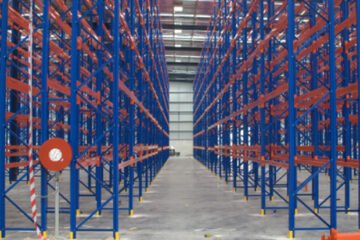Organizations today are facing complex challenges that demand more than routine solutions. A Design Thinking Workshop provides a structured yet flexible approach to problem-solving, encouraging creativity, collaboration, and user-focused outcomes. By shifting the focus toward empathy and experimentation, these workshops help teams uncover fresh perspectives and deliver solutions that truly matter.
What is Design Thinking?
Design thinking is a problem-solving method that prioritizes human needs above all else. Rather than diving straight into answers, the process begins with understanding people’s experiences, frustrations, and motivations. Once these insights are clear, teams brainstorm, prototype, and test ideas in an iterative cycle.
The approach often follows five main stages:
Empathize – Discover what users really need by observing and listening.
Define – Frame the core challenge clearly.
Ideate – Generate multiple creative ideas without judgment.
Prototype – Build simple models to explore possible solutions.
Test – Gather feedback and refine ideas until they are effective.
Because it’s cyclical, design thinking allows participants to revisit earlier steps and strengthen outcomes as new insights arise.
Why Choose a Workshop?
A workshop turns theory into practice. Instead of passively learning, participants actively engage with tools and exercises designed to stimulate innovation. This makes the learning immediate, memorable, and directly relevant to workplace challenges.
Key benefits include:
Collaborative problem-solving: Teams work together across functions and roles.
User-centered design: Solutions are based on real needs rather than assumptions.
Creativity boost: Encourages unconventional thinking and reduces fear of failure.
Rapid results: Ideas are tested quickly, minimizing wasted time and resources.
These sessions help create an environment where ideas can flourish and solutions are both innovative and practical.
Who Can Benefit Most?
The versatility of design thinking makes workshops suitable for nearly anyone. They are especially valuable for:
Executives and leaders who want to inspire innovation in their organizations.
Teams in large companies designing products and services for customers.
Educators and trainers who want to make learning more engaging.
Startups and entrepreneurs testing bold ideas with limited budgets.
Project managers guiding diverse teams through complex tasks.
Essentially, anyone with a desire to solve problems creatively can benefit.
Inside a Design Thinking Workshop
Workshops are highly interactive, encouraging participants to collaborate, experiment, and think outside the box. Activities often include:
Warm-up games to break barriers and build creative energy.
Empathy exercises to step into the shoes of users.
Brainstorming sessions where all ideas are welcomed.
Quick prototypes made from simple tools and materials.
Feedback sessions to refine and strengthen ideas.
By the end of the day, participants leave with not just insights but practical solutions, tools, and renewed confidence in creative problem-solving.
Long-Term Value
The impact of these workshops doesn’t stop once the session ends. Participants bring a fresh mindset back to their workplaces, leading to:
Stronger collaboration across departments.
Increased openness to experimentation and learning from failure.
Tools and methods that can be reused for future projects.
A culture that prioritizes user needs and innovative thinking.
Over time, organizations that embrace design thinking become more adaptable and better equipped to respond to change.
The Role of Visual Thinking
Visual methods, like sketching, storyboards, or journey maps, are commonly used during workshops. These tools help simplify complex challenges, spark new ideas, and create shared understanding among participants. By making ideas visible, teams can align quickly and move forward with clarity.
Conclusion
In an era where creativity and adaptability are crucial, a Design Thinking Workshop provides the ideal platform to develop innovative, human-centered solutions. It combines empathy, experimentation, and collaboration in a way that empowers participants to think differently and act decisively. Whether you’re leading a company, running a team, teaching, or launching a business, these workshops can shift how you approach challenges and opportunities. Guided by experts such as Simon Banks, the experience becomes not only effective but transformative.





